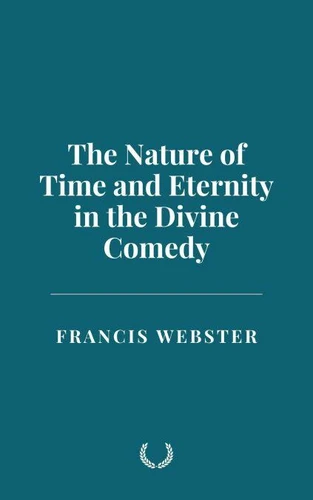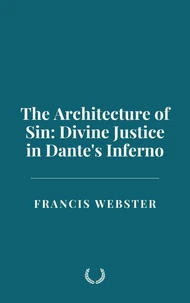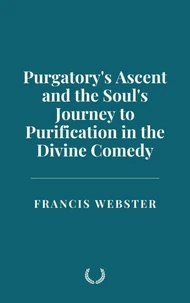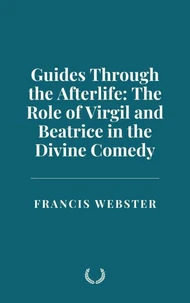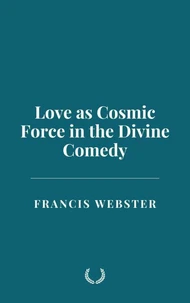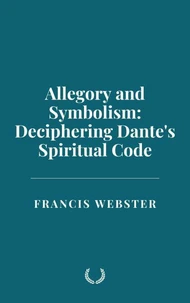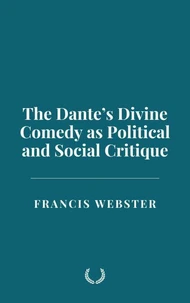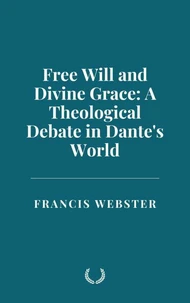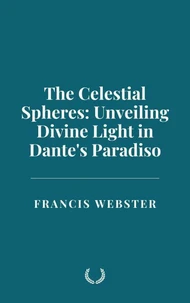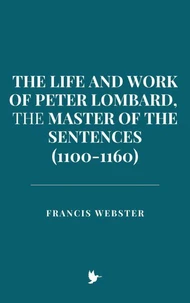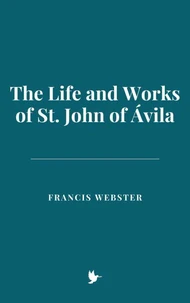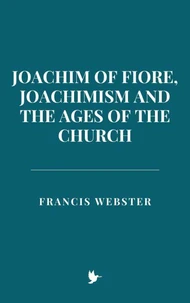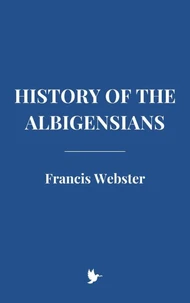The Nature of Time and Eternity in the Divine Comedy
Par :Formats :
Disponible dans votre compte client Decitre ou Furet du Nord dès validation de votre commande. Le format ePub est :
- Compatible avec une lecture sur My Vivlio (smartphone, tablette, ordinateur)
- Compatible avec une lecture sur liseuses Vivlio
- Pour les liseuses autres que Vivlio, vous devez utiliser le logiciel Adobe Digital Edition. Non compatible avec la lecture sur les liseuses Kindle, Remarkable et Sony
 , qui est-ce ?
, qui est-ce ?Notre partenaire de plateforme de lecture numérique où vous retrouverez l'ensemble de vos ebooks gratuitement
Pour en savoir plus sur nos ebooks, consultez notre aide en ligne ici
- FormatePub
- ISBN8230443018
- EAN9798230443018
- Date de parution08/03/2025
- Protection num.pas de protection
- Infos supplémentairesepub
- ÉditeurIndependently Published
Résumé
The medieval understanding of time was deeply rooted in a combination of religious doctrine, classical philosophy, and emerging theological frameworks. Dante Alighieri, writing in the early 14th century, was profoundly influenced by these intellectual currents as he constructed The Divine Comedy. In his work, time emerges not merely as a chronological progression, but as a metaphysical concept intricately woven with the human soul's journey toward salvation.
In Dante's time, the perception of time was still heavily shaped by the Church's teachings. Time was not seen as a linear, secular measure as it is often conceptualized today, but as a divine structure underpinned by the will of God. Time and eternity, as conceptualized by the medieval Church, were intertwined and understood through the lens of Christian eschatology, which asserted that human history was directed toward an ultimate end, the Last Judgment.
Time, in this sense, was a fleeting moment in which each individual's actions determined their eternal fate. Dante's portrayal of time, particularly in his journey through Hell, Purgatory, and Paradise, is influenced by the framework established by the Church Fathers, such as Augustine of Hippo, whose Confessions (397-400 AD) proposed a profound shift in the understanding of time. Augustine's meditation on time, in which he famously asked, "What then is time?" suggested that time was a product of human consciousness and memory.
According to Augustine, the past is a memory, the future is a hope, and the present moment is fleeting and unstable. In The Divine Comedy, Dante echoes this fragmented conception of time, especially in his depictions of Hell, where time seems to stagnate, and in Paradise, where time is subsumed into eternity.
In Dante's time, the perception of time was still heavily shaped by the Church's teachings. Time was not seen as a linear, secular measure as it is often conceptualized today, but as a divine structure underpinned by the will of God. Time and eternity, as conceptualized by the medieval Church, were intertwined and understood through the lens of Christian eschatology, which asserted that human history was directed toward an ultimate end, the Last Judgment.
Time, in this sense, was a fleeting moment in which each individual's actions determined their eternal fate. Dante's portrayal of time, particularly in his journey through Hell, Purgatory, and Paradise, is influenced by the framework established by the Church Fathers, such as Augustine of Hippo, whose Confessions (397-400 AD) proposed a profound shift in the understanding of time. Augustine's meditation on time, in which he famously asked, "What then is time?" suggested that time was a product of human consciousness and memory.
According to Augustine, the past is a memory, the future is a hope, and the present moment is fleeting and unstable. In The Divine Comedy, Dante echoes this fragmented conception of time, especially in his depictions of Hell, where time seems to stagnate, and in Paradise, where time is subsumed into eternity.
The medieval understanding of time was deeply rooted in a combination of religious doctrine, classical philosophy, and emerging theological frameworks. Dante Alighieri, writing in the early 14th century, was profoundly influenced by these intellectual currents as he constructed The Divine Comedy. In his work, time emerges not merely as a chronological progression, but as a metaphysical concept intricately woven with the human soul's journey toward salvation.
In Dante's time, the perception of time was still heavily shaped by the Church's teachings. Time was not seen as a linear, secular measure as it is often conceptualized today, but as a divine structure underpinned by the will of God. Time and eternity, as conceptualized by the medieval Church, were intertwined and understood through the lens of Christian eschatology, which asserted that human history was directed toward an ultimate end, the Last Judgment.
Time, in this sense, was a fleeting moment in which each individual's actions determined their eternal fate. Dante's portrayal of time, particularly in his journey through Hell, Purgatory, and Paradise, is influenced by the framework established by the Church Fathers, such as Augustine of Hippo, whose Confessions (397-400 AD) proposed a profound shift in the understanding of time. Augustine's meditation on time, in which he famously asked, "What then is time?" suggested that time was a product of human consciousness and memory.
According to Augustine, the past is a memory, the future is a hope, and the present moment is fleeting and unstable. In The Divine Comedy, Dante echoes this fragmented conception of time, especially in his depictions of Hell, where time seems to stagnate, and in Paradise, where time is subsumed into eternity.
In Dante's time, the perception of time was still heavily shaped by the Church's teachings. Time was not seen as a linear, secular measure as it is often conceptualized today, but as a divine structure underpinned by the will of God. Time and eternity, as conceptualized by the medieval Church, were intertwined and understood through the lens of Christian eschatology, which asserted that human history was directed toward an ultimate end, the Last Judgment.
Time, in this sense, was a fleeting moment in which each individual's actions determined their eternal fate. Dante's portrayal of time, particularly in his journey through Hell, Purgatory, and Paradise, is influenced by the framework established by the Church Fathers, such as Augustine of Hippo, whose Confessions (397-400 AD) proposed a profound shift in the understanding of time. Augustine's meditation on time, in which he famously asked, "What then is time?" suggested that time was a product of human consciousness and memory.
According to Augustine, the past is a memory, the future is a hope, and the present moment is fleeting and unstable. In The Divine Comedy, Dante echoes this fragmented conception of time, especially in his depictions of Hell, where time seems to stagnate, and in Paradise, where time is subsumed into eternity.

